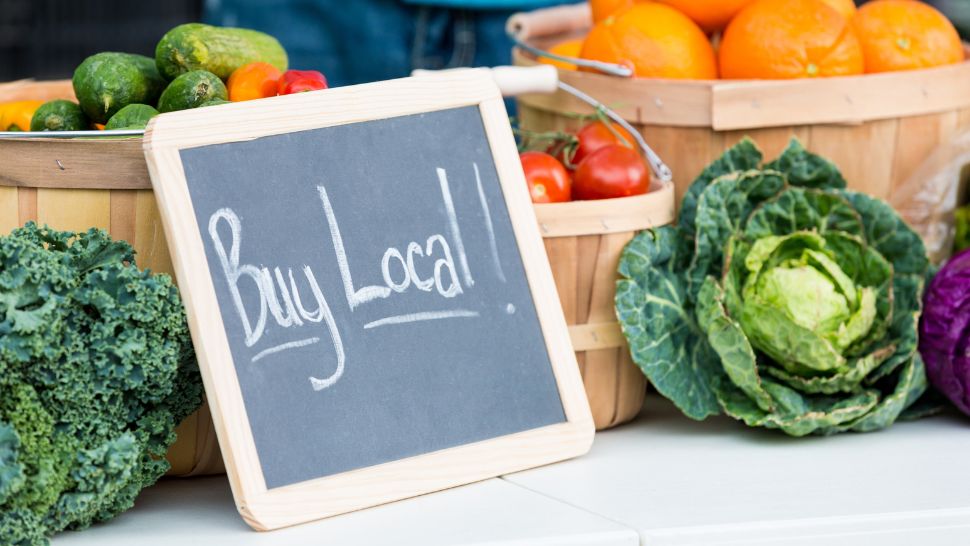
What’s the buzz?
Proponents of the local food movement claim that food that is grown locally is higher in quality, produces less emissions through production and reduced travel, and strengthens local economies. But does food that is grown in your local region really live up to these claims?
What does the science say?
The foods that are available at your local farmers markets – whether produce or animal-based foods – are produced in your community, which means that they are not imported from distant states (or even countries) like many of the foods available in standard supermarkets. For fruits and vegetables especially, this means they are fresh, often picked only the day before, and they travel less miles before you purchase them. How food is handled, and how long it sits or travels before being bought and prepared, matters. Research has found that local produce is often fresher and higher in nutrients than foods that have been picked, packed, driven, flown, or frozen before reaching your store. And because local foods have spent less time traveling to your market (and your plate), they also often retain flavor components that make them taste better.
In addition to the fresher quality and better taste of local food, having fewer middlemen involved and shorter distances for transport may have an impact on the environment. Purchasing seasonal foods grown in your home region may mean that food releases less greenhouse gas emissions compared to out-of-season foods that are transported by truck, ship, or plane over long distances (like strawberries in January). Local foods also often use less packaging, and getting to know your local farmers means you can choose to purchase food that is grown and harvested using sustainable farming practices. However, some research on local food systems suggests the reduction in emission is highly dependent on the type of food being produced, the local supply chain, and in which country or region the food is produced.
By choosing to buy food from local producers you are also strengthening your region’s economy. The money you spend with local farmers is often re-invested in other local businesses in your local region. This can lead to increased support for local organizations and activities, a boost in the community’s economy, and can increase the number of jobs in your area.
What’s the takeaway?
Local food may be fresher in quality and retain more nutrients than foods shipped and stored long distances. And depending on your region’s supply chain, local food may also be less impactful on the environment due to less greenhouse emissions released during transport. In addition, supporting local farmers and food producers builds a connection to your community, while strengthening your local economy. All while enjoying the best flavors that each season has to offer − a win-win for your palate and the planet.
To learn more about how we are connecting with local businesses, check out our Locally Crafted Program.